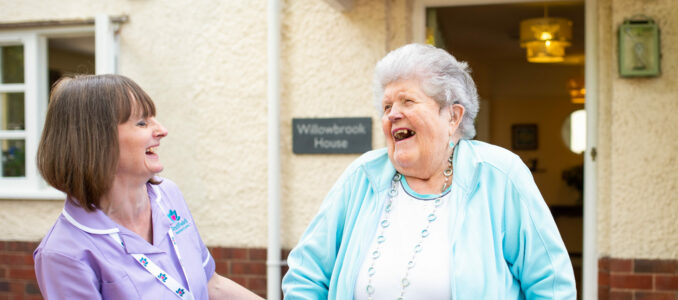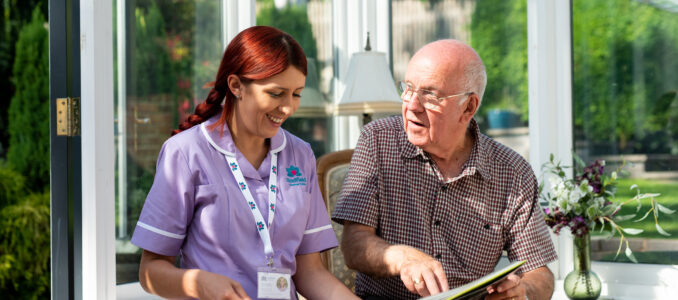
Mary’s story
Mary was married at twenty-five and was a full-time housewife until her husband was tragically killed in a car crash, only ten years later. Mary says that although the tragedy of losing...
Learn moreHarrogate, Wetherby & North Yorkshire
Please enter the office location/term above to receive results for your closest office as well as information matches
Strokes affect many people, each year more than 100,000 people have strokes. That equates to one person every minute. There are around 1.3m stroke survivors in the UK (Stroke Association figures).
A stroke is a rapid development of disturbance of brain function lasting more than 24 hours. A transient ischaemic attack (TIA) is the same but fully resolves within 24 hours.
The majority of strokes (84%) occur because of a clot on the brain which causes part of the brain to lose blood supply and die. Most of the remaining 16% of strokes are caused by a bleed in the brain, called a cerebral haemorrhage.
Strokes are a major health problem in the UK, accounting for about 11% of all deaths.
Find out more information here
What are some of the main risk factors for strokes?
There are many risk factors for stroke. Some of them are listed here and these are all risk factors that can be modified to reduce the risk:
What are the signs and symptoms of a stroke?
Signs and Symptoms of having a stroke are:
What’s the treatment for a stroke?
Remember the adverts ‘act FAST’
Hospitals may carry out a brain scan either CT or MRI soon after the start of symptoms to determine the type of stroke and whether it is a clot or a bleed.
Longer-term treatment involves:
Find out more information about treating strokes on the NHS website
All of our carers receive training in how to recognise the signs of stroke so that they too can act FAST and call 999. We support many people who have had strokes. The care that each person requires is unique to them, which is why we put in a tailored care plan to provide the exact care required. We can be flexible so if there are high care needs immediately on coming home after a stroke to rehabilitate, we can then reduce this week by week or day by day as recovery progresses.
As well as providing personal care and help with running the house, we can also help with rehabilitation. We support many people to undertake physiotherapy exercises and accompany on walks to build up strength and confidence and to promote independence.
We are able to administer medication and our technology solutions allow us to monitor the times that medication is given which is important to ensure that blood pressure and other preventative medications are given at the right times. Our Care Professionals can also help with shopping and preparing meals and ensuring that diets are suitable and low in fat and salt if required and encourage and support clients to stay well hydrated.
We’d love to talk about ways we can help, get in touch with your local Radfield team today.

Mary was married at twenty-five and was a full-time housewife until her husband was tragically killed in a car crash, only ten years later. Mary says that although the tragedy of losing...
Learn more
Charles’s daughter, Sarah, contacted us after becoming concerned that her mother June was finding it increasingly difficult to manage her father’s behaviour. She was unsure what to do and in the first...
Learn moreThis short quiz will help you work out what Radfield services will benefit you the most.
How often can I change my care package?
How do I pay for the care services?
How do I get direct payment funding?
Can I get help with funding for my home care?
What is a direct payment?
If I receive a direct payment, will I have to pay any of my own money towards my care?
If I'm on a direct payment, how will social services pay me the money?
I see that you use a software system - how does this work?
Can I cancel at any time if I don’t want to continue?